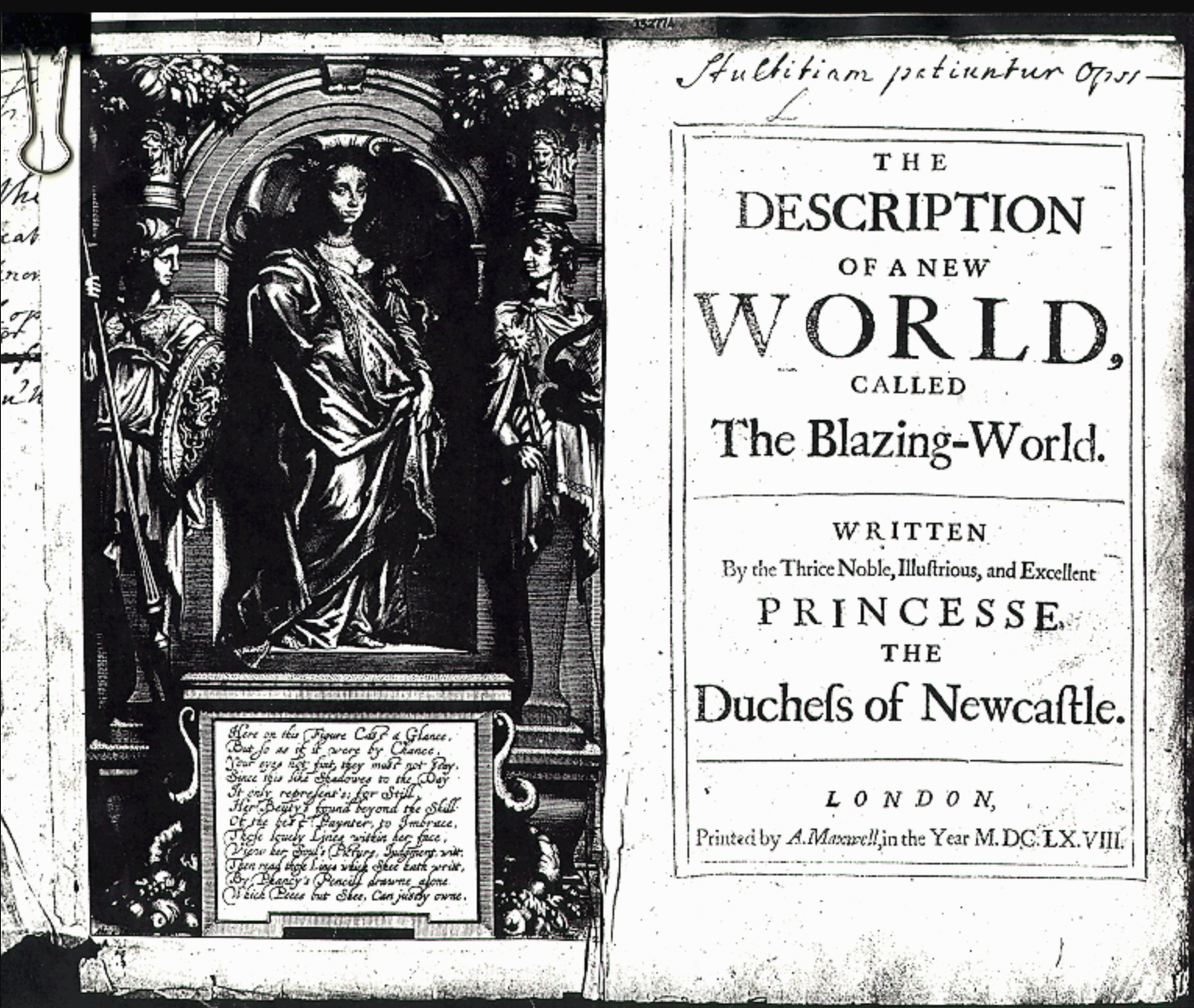
For a variety of reasons, science fiction has long been regarded as a mostly male-oriented realm of literature. This is evidenced, in part, by the eagerness to celebrate particular works of sci-fi written by women, like Ursula K. LeGuin’s Earthsea saga, Octavia Butler’s Parable novels, Joanna Russ’ The Female Man, or Margaret Attwood’s The Handmaid’s Tale (uneasily though it fits within the boundaries of the genre). But those who prefer the early stuff can go all the way back to the mid-seventeenth century, where they’ll find Margaret Cavendish’s The Blazing World, readable and downloadable in all its strange glory free online.
“The Blazing World was first published in 1666 and is often considered a forerunner to both science fiction and the utopian novel genres,” writes book blogger Eric Karl Anderson. “It’s a totally bonkers story of a woman who is stolen away to the North Pole only to find herself in a strange bejeweled kingdom of which she becomes the supreme Empress. Here she consults with many different animal/insect people about philosophical, religious and scientific ideas. The second half of the book pulls off a meta-fictional trick where Cavendish (as the Duchess of Newcastle) enters the story herself to become the Empress’ scribe and close companion.”
In the video just below, Youtuber Great Books Prof frames this as not just a work of proto-science fiction, but also a pioneering use of the “multiverse” concept that has undergirded any number of twenty-first-century blockbusters.
The Blazing World continues to inspire: actor-director Carlson Young put out a loose cinematic adaptation just a few years ago. Cavendish herself described the book as a “hermaphroditic text,” possibly in reference to its engagement with topics then addressed almost exclusively by men. But it also occupied two categories at once in that she originally published it as a fictional section of her book Observations upon Experimental Philosophy, one of six philosophical volumes she wrote. In fact, her work qualified her as not just philosopher and novelist, but also scientist, poet, playwright, and even biographer. That last she accomplished by writing The Life of the Thrice Noble, High and Puissant Prince William Cavendish, who happened to be her husband. Let her life be a lesson to those young girls who simultaneously dream of becoming a princess and a writer whose books are read for centuries: sometimes, you can have it all.
Related content:
100 Great Sci-Fi Stories by Women Writers (Read 20 for Free Online)
The First Work of Science Fiction: Read Lucian’s 2nd-Century Space Travelogue A True Story
When Astronomer Johannes Kepler Wrote the First Work of Science Fiction, The Dream (1609)
The Encyclopedia of Science Fiction: 17,500 Entries on All Things Sci-Fi Are Now Free Online
Based in Seoul, Colin Marshall writes and broadcasts on cities, language, and culture. His projects include the Substack newsletter Books on Cities, the book The Stateless City: a Walk through 21st-Century Los Angeles and the video series The City in Cinema. Follow him on Twitter at @colinmarshall or on Facebook.


“M.DC.LX.VIII” as it appears on the image denotes the year “1668.”
It’s a reprint — it appears the original 1666 edition is now rare and no image is readily available; Wikipedia also shows the 1668 title page.
I stumbled on this article after finishing the third volume of Alan Moore’s League of Extraordinary Gentleman, entitled The Black Dossier. It includes references to and scenes set in the Blazing World. I had no idea it was so important! The whole “multiverse” idea clearly prefigures comic multiverses etc. and I am not surprised that Moore picked this up as a key influence for his odd worldview, viewing literature as a form of dimension-hopping magic. Will have to explore.